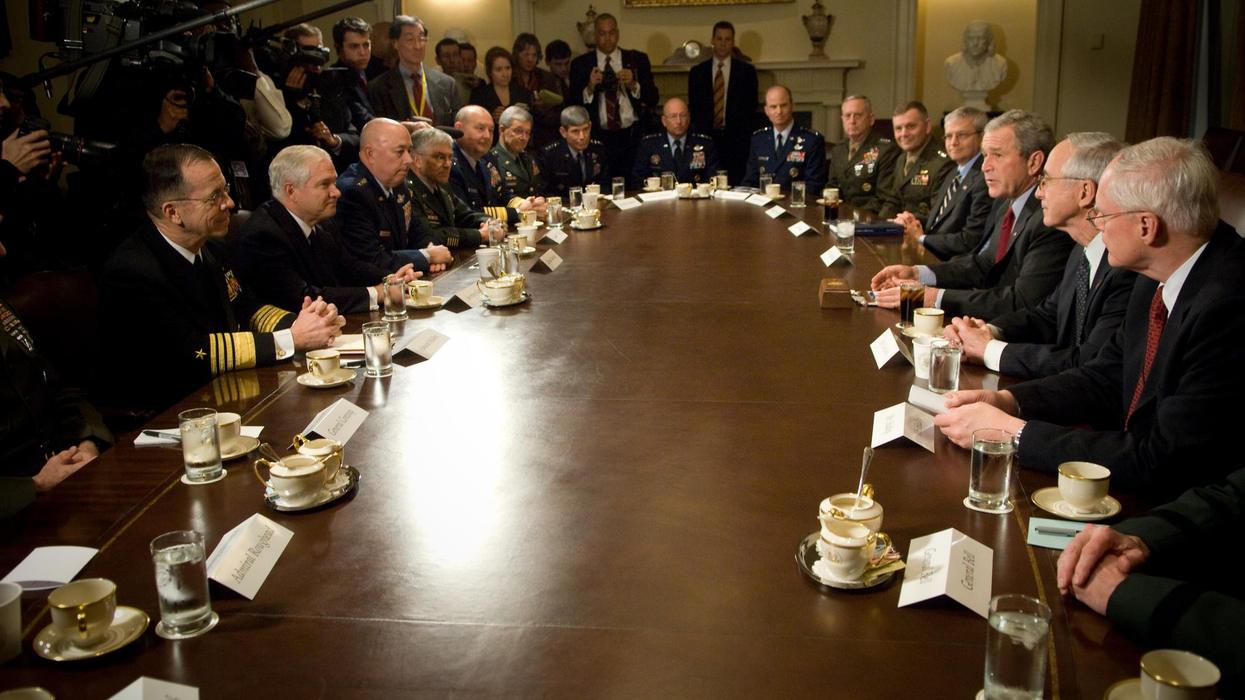The Senate’s 2022 National Defense Authorization Act empowers the Pentagon to establish a strategic competition initiative for the U.S. Africa Command. If the bill passes, this will be the first security initiative expressly authorized by Congress since the Cold War to funnel military aid to African forces to counter Beijing and Moscow. The proposal lays new legal groundwork for a long-term bid to expand U.S. military influence in Africa. But the security initiative it authorizes will likely be dogged by U.S. military and diplomatic negligence and sow instability in Africa and U.S.-Africa relations. It should be cut from the bill before the 2022 NDAA is signed into law.
The proposed initiative aims to fight “coercion by near-peer rivals” against African governments by strengthening their militaries and addressing myriad “sources of insecurity” across the continent. If it’s established, high bipartisan consensus around both U.S. Africa policy and the threat posed by China and Russia suggest that its scope and funding are poised to grow quickly. This proposal warrants more public scrutiny than it has received, particularly given that the United States charted a similar course during the Cold War and African reformers are still facing the aftermath. A long history suggests that the proposed military aid for Africa will escape congressional oversight while the Pentagon and State Department will do little to monitor and account for its consequences.
Near the Cold War’s conclusion, while the Reagan State Department publicly deemed U.S. military aid to Africa “measured and moderate,” a classified Pentagon memo labeled key aid programs “a tragic joke,” “not demonstrably necessary and not sustainable,” based in “intuition and popular wisdom,” with “no success stories to date and none on the horizon.” There has been progress since then but much of that memo could have been written yesterday. U.S. training for coup leaders in Mali and Guinea, funding for rampaging battalions in DRC and Cameroon, and military aid to repressive governments in Uganda and Niger tell much the same story. It’s one that reflects not only a U.S. impulse to prioritize counterterrorism over peace and democracy in Africa, but also inept monitoring and assessment of U.S. “train and equip” programs for African armed forces.
The Pentagon, for example, rarely fails to tout its human rights training for African militaries. But the Government Accountability Office recently deemed its assessments of the scope and quality of this instruction unreliable. The Pentagon has no protocol in place to assess the impact of its human rights training on the “behavior, practices, or policies” of African militaries. It simply doesn’t know, and it doesn’t have a good means of finding out.
Worse still, the Defense Security Cooperation Agency couldn’t even produce an accurate inventory of the military equipment it transferred to African countries from 2017 to 2020, heightening the risk that it might be used against noncombatants or transferred to U.S. enemies. Nor did the U.S. Africa Command routinely perform oversight activities to prevent this from happening.
According to a Pentagon Inspector General report released through FOIA, the U.S. Africa Command also has a “personnel accountability” problem and is often unable to track the whereabouts and status of the numerous military contractors it employs throughout the continent.
State Department surveys of U.S. defense articles and services licensed for commercial export to Africa often indicate good chances of them falling into the wrong hands. Surveys during the Trump administration revealed record highs in the percentage of these exports deemed “unfavorable,” primarily because they were delivered to “unlicensed” or “unreliable” foreign parties.
Likewise, the State Department often had little idea where military equipment donated through its flagship Trans-Sahara Counterterrorism Partnership ended up. Rather than conducting site visits or relying on satellite technology to keep track of the armored vehicles and other equipment it donated to states like Cameroon and Niger, the agency often trusted social media to determine if it was being misused. Earlier this year, the House passed a reform bill for this floundering security partnership. The bill was rightly opposed by a handful of Africa experts and progressive House members because it would’ve also formally authorized the initiative. Its key reforms were written into the House's 2022 NDAA, but they aren’t in the Senate version, and they are sorely needed.
The 2017 NDAA passed even broader reforms to improve monitoring and assessment of U.S. security cooperation programs. Two years later, the Senate Armed Services Committee deemed the Pentagon’s progress toward this goal “wholly inadequate.” Nonetheless, this year the Biden administration requested budget cuts for these activities, from a paltry $8.9 million to $7 million out of a security cooperation budget of more than $6.5 billion.
This void of oversight should be kept in mind when assessing the failures of U.S. security policy in Africa. It should be scrutinized before U.S. soldiers are killed during security cooperation missions in Africa and U.S.-trained troops commit human rights violations and overthrow governments. The Senate’s new security initiative will inherit this legacy of negligence. It's more than enough reason to discard the proposal before the 2022 NDAA reaches President Biden’s desk.

















